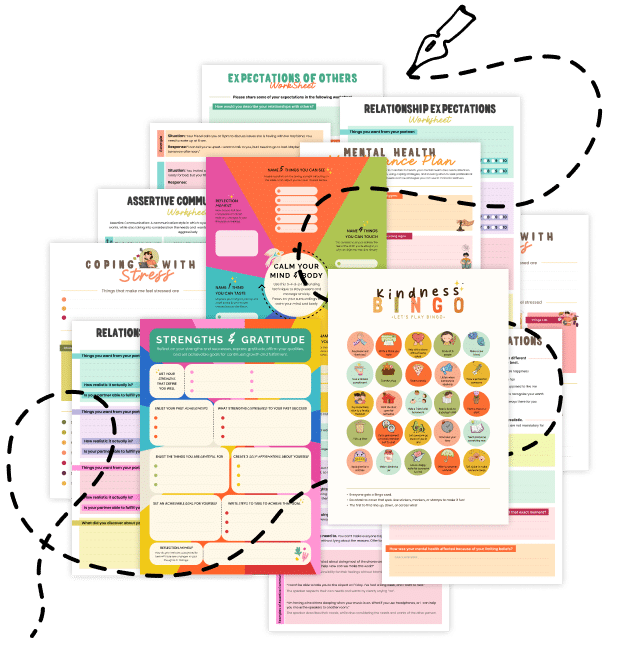20 Things You Should Know About Metamemory
Discover the concept of Metamemory—your awareness and understanding of your own memory processes. Learn 20 key insights and practical tips to enhance self-awareness and improve learning outcomes.
1. What Is Metamemory?
Metamemory refers to your knowledge and awareness of how your memory works. It includes insights into your strengths and weaknesses, beliefs about how well you can recall information, and strategies for optimizing retention.
2. The Foundation of Self-Awareness
It is a crucial aspect of metacognition, the broader ability to reflect on and regulate your own cognitive processes. Essentially, metamemory is a subcomponent that specifically focuses on how you handle and evaluate memory tasks.
3. Why It Matters
Having accurate metamemory can improve study habits, boost performance in exams or presentations, and prevent overconfidence or underestimation regarding what you truly know or don’t know.
4. Metamemory vs. Memory Performance
Your actual memory abilities (performance) can differ from what you believe about them. Sometimes, you may think you’ve mastered a topic when you’ve barely scratched the surface—highlighting the importance of accurate self-assessment.
5. Components of Metamemory
It typically involves:
- Knowledge of your memory (e.g., “I’m good at remembering faces.”)
- Monitoring how well you’ve learned something (e.g., “I still need to review Chapter 3.”)
- Control over your memory strategies (e.g., deciding to use flashcards or summarizing techniques).
6. The Illusion of Knowing
A common pitfall is the illusion of knowing, where you overestimate your comprehension after reading or studying. Strategies like self-testing can help reveal whether you truly grasp the material.
7. Role in Study Planning
Understanding your memory helps you create effective study schedules, choose suitable learning strategies (e.g., spaced repetition vs. cramming), and set realistic goals.
8. The Importance of Self-Testing
Testing yourself is one of the best ways to improve metamemory. When you retrieve information without looking at notes, you can accurately gauge what you know and identify gaps.
9. Calibration Techniques
Calibration is about aligning your perceived memory ability with actual performance. Tools like quizzes, flashcards, or peer discussions can help you calibrate more precisely.
10. Metamemory and Confidence
Healthy metamemory strikes a balance between confidence and caution. Knowing what you know (and what you don’t) prevents both underconfidence and harmful overconfidence.
11. Emotional Factors
Anxiety, stress, or excitement can skew metamemory judgments. For instance, test anxiety might make you underestimate your knowledge, whereas excitement about a topic can cause overestimation.
12. Metamemory Across Age
Children and adolescents often have less-developed metamemory, leading them to misjudge study needs. Adults can refine metamemory over time, but biases can still persist if not actively managed.
13. Digital Tools for Insight
Apps and platforms offering spaced repetition or flashcard analytics can enhance it. They provide tangible data on what you consistently recall vs. what needs more review.
14. Influence of Feedback
Constructive feedback from peers, teachers, or colleagues helps refine your self-awareness. Understanding where you truly stand in knowledge or skill fosters improved metamemory.
15. Metamemory in Group Settings
In team projects, shared reflections on each member’s understanding can reveal collective knowledge gaps. Regular discussions prevent the group from overestimating or underestimating their progress.
16. Memory Strategies That Reinforce Metamemory
Techniques like summarizing, teaching others, or creating mind maps not only enhance recall but also boost your insight into how well you’ve absorbed information.
17. Avoiding Memory Pitfalls
False confidence can lead to incomplete study or sloppy work. By regularly assessing your memory recall, you minimize the risk of “I thought I knew this, but I actually didn’t.”
18. Critical Thinking and Metamemory
Critical thinking skills complement metamemory. Questioning your recall—“Is my memory of this event accurate?”—encourages a deeper look at evidence or alternative perspectives.
19. The Future of Metamemory Research
Ongoing studies explore how to enhance metamemory through technology, adaptive learning systems, and cognitive training exercises, aiming to improve both academic and professional performance.
20. Related Topics to Explore
- Active Recall vs. Passive Review: Techniques for deeper learning and better memory checks.
- Metacognitive Monitoring: Tracking your own thought processes in real-time.
- Spacing Effect: Scheduling study sessions to align with how the brain retains information.
- Confidence Calibration: Aligning self-perceived knowledge with actual expertise.
Quick Tips for Improving Metamemory
- Frequent Self-Testing: Use quizzes or flashcards to check real recall vs. perceived knowledge.
- Maintain a Study Journal: Reflect on what felt easy or hard, noting actual performance outcomes.
- Seek External Feedback: Compare your self-assessment with results from peers, teachers, or colleagues.
- Use Spaced Repetition: Return to material over time to confirm what’s truly retained.
- Stay Curious: Ask questions about your own learning process—“Do I really know this?”
Metamemory is at the heart of effective learning and self-improvement. By understanding how your memory works—and regularly testing your actual knowledge—you close the gap between perception and performance. This awareness prevents the common pitfalls of overconfidence and under-preparation, leading to more efficient study, sharper professional performance, and greater intellectual honesty.

